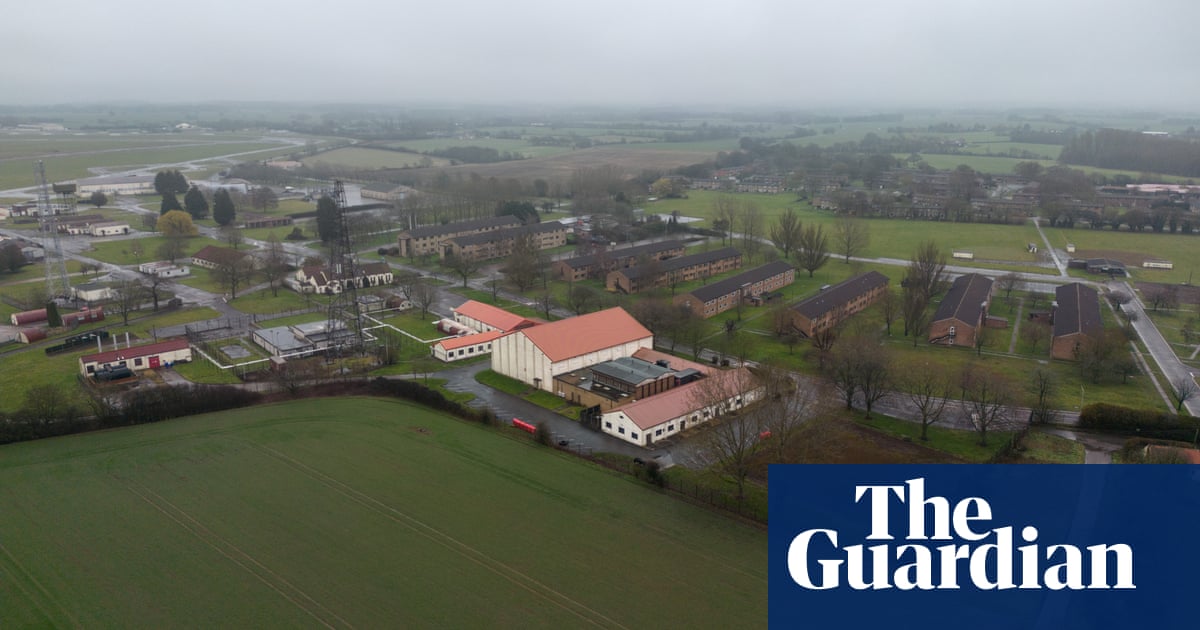
Three women serving in the armed forces have begun legal action aimed at preventing the military courts from trying UK rape cases, complaining that the conviction rate is five to six times lower than in civilian courts.
They are seeking a judicial review after the defence secretary, Ben Wallace, said in February he was ignoring a recommendation that rape and other serious cases involving the military in the UK should routinely be handled by the police and Crown Prosecution Service (CPS).
The women, who cannot be named, all say they were victims of rape or serious sexual assault while serving, but, although their cases were investigated by military authorities, none resulted in a conviction.
All three are suffering from post-traumatic stress disorder (PTSD) as a result of their experiences, and two – one from the army and one from the navy – are in the process of being medically discharged.
The third woman, an army reservist, reported a rape – which resulted in the accused being acquitted at trial – and a serious sexual assault for which she was told there was no realistic prospect of conviction.
“At no point prior to an investigation commencing was the question of whether the matter should be reported to the civilian police discussed with any of the complainants,” said a letter sent to Wallace last week setting out the women’s case.
“All three complainants have officially reported (either via the service complaints process or via separate litigation) very serious concerns about the quality of the service police investigations and/or decision-making by the Service Prosecuting Authority.”
The women are represented by Emma Norton, director of the newly created Centre for Military Justice. She said: “Despite the appalling treatment they suffered when they reported rape, these three incredibly brave women have stepped forward to try and persuade the courts that this system has got to change.”
Forces personnel have long been subject to services law and the court martial system, which applies in the UK and abroad. Military courts have been able to try rape and other serious offences since 2009. But in theory civilian law should take precedence where an alleged offence takes place at home.
In practice, however, that is disregarded by the Ministry of Defence (MoD) where only military personnel are involved. Data shows that increasing numbers of rapes and other sexual offences are now dealt with in the military system – rising from 95 in 2015 to 178 in 2019.
A total of 129 rape cases were heard at military courts martial in the five years to 2019, 13 of which (10%) resulted in conviction, according to MoD figures. By contrast, the civilian rate during that period ranged between 57% and 63%, according to the CPS.
A critical review of the service justice system was recently carried out by retired senior crown court judge Shaun Lyons with the help of Sir Jon Murphy, the former chief constable of Merseyside.
Released at the end of February, its first recommendation was that “the court martial jurisdiction should no longer include murder, manslaughter and rape when these offences are committed in the UK, except when the consent of the attorney general is given”.
But the MoD immediately rejected that, arguing instead that it “believes that the service justice system is a system capable of dealing with the most serious offences and should be able to continue to do so”.
The official response said that “some cases” are best dealt with by military police and courts and that “the main principle in deciding who has primacy is whether the offence has any civilian context” – implying that cases involving only personnel should continue to be dealt with as now.
The majority – around two-thirds – of all sexual offences reported within the military in 2019 followed incidents that took place in the UK, and just over three-quarters of the victims were women. Women now account for 11% of the total armed forces, or just over 15,000 people.
Supporters of the current system argue that the military justice system provides a way to deal with offences involving British personnel serving overseas, but when the most recent legislation was introduced in 2006 it was never intended to take over the functions of the criminal justice system in the UK.
Norton said if the three women succeed it would not make a difference to their own cases “because they have already been seriously compromised because of this unfair system. They are doing it for their fellow serving men and women who may, in the future, need and deserve a better system of justice.”
The Ministry of Defence said all sexual offences were unacceptable and anybody in service failing to meet the appropriate standard would be dealt with robustly and subject to disciplineary procedures as necessary.
A spokesperson said: “The armed forces’ justice system closely mirrors the system for civilians. It is subject to regular parliamentary oversight and service police investigations are independent of the military chain of command.”
Victim support mechanisms are available, the MoD added.












